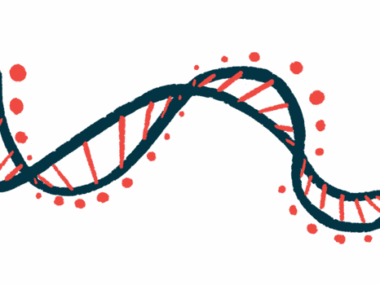Tuspetinib study in newly diagnosed AML moves to higher dose
Reasonable safety seen at 40 mg daily; Phase 1/2 trial enrolling adults in US
Written by |

Aptose Biosciences will be testing a higher dose of tuspetinib as part of a triple-combination regimen that’s being explored in a clinical trial in people with acute myeloid leukemia (AML), a rare and often aggressive form of blood cancer.
The multipart Phase 1/2 trial, now known as TUSCANY (NCT03850574), had been testing tuspetinib at a dose of 40 mg per day, given in combination with the approved blood cancer therapies venetoclax (sold as Venclexta) and azacitidine (sold as ).
Testing of tuspetinib will to an 80 mg per day dose, alongside the standard therapies given at their regular dosing schedules, Aptose announced in a company press release. This decision follows a positive review from the trial’s safety review committee, a team of experts tasked with ensuring the safety of study participants.
TUSCANY is enrolling eligible patients at a dozen sites in the U.S. This trial part is open to adults with newly diagnosed AML who are not eligible to receive induction chemotherapy — an initial and intensive blood cancer treatment phase that involves treatment with strong chemotherapy drugs to kill as many cancer cells as possible.
No dose-limiting toxicity, lengthy myelosuppression seen in initial group
An earlier part of the study, called Aptivate, evaluated tuspetinib as a monotherapy in patients with relapsed or refractory (R/R) AML.
“With a high level of enthusiasm, our [safety committee] — comprised of study investigators that include key leaders in the development of therapeutic agents for AML — recommended we escalate dosing in our TUSCANY trial with tuspetinib,” said Rafael Bejar, MD, PhD, chief medical officer of Aptose.
The recommendation followed a review of data from the first four patients dosed in the trial. Findings announced earlier this month showed that 2 of 3 evaluable patients had a complete response, essentially meaning they showed no signs of cancer after a first monthlong treatment cycle.
These four adults, all treated or being treated with tuspetinib at a 40 mg dose, also showed no significant safety concerns, according to Aptose. There were no dose-limiting toxicities (side effects suggesting the medication’s dose is too high to be used safely), and no one experienced long-term myelosuppression (a condition where the bone marrow isn’t making enough new blood cells, a common safety issue in blood cancer treatments).
“The lack of prolonged myelosuppression with no [dose-limiting toxicities] and several complete responses … is truly encouraging,” Bejar said. “As one our chief investigators remarked, if the TUS+VEN+AZA [tuspetinib, venetoclax, and azacitidine] triplet shows efficacy and tolerability in difficult-to-treat AML populations with little myelosuppression, tuspetinib could be a game changer for frontline AML treatment.”
Tuspetinib is designed to block the activity of multiple cell signaling molecules called kinases, which are involved in the growth of cancer cells.




